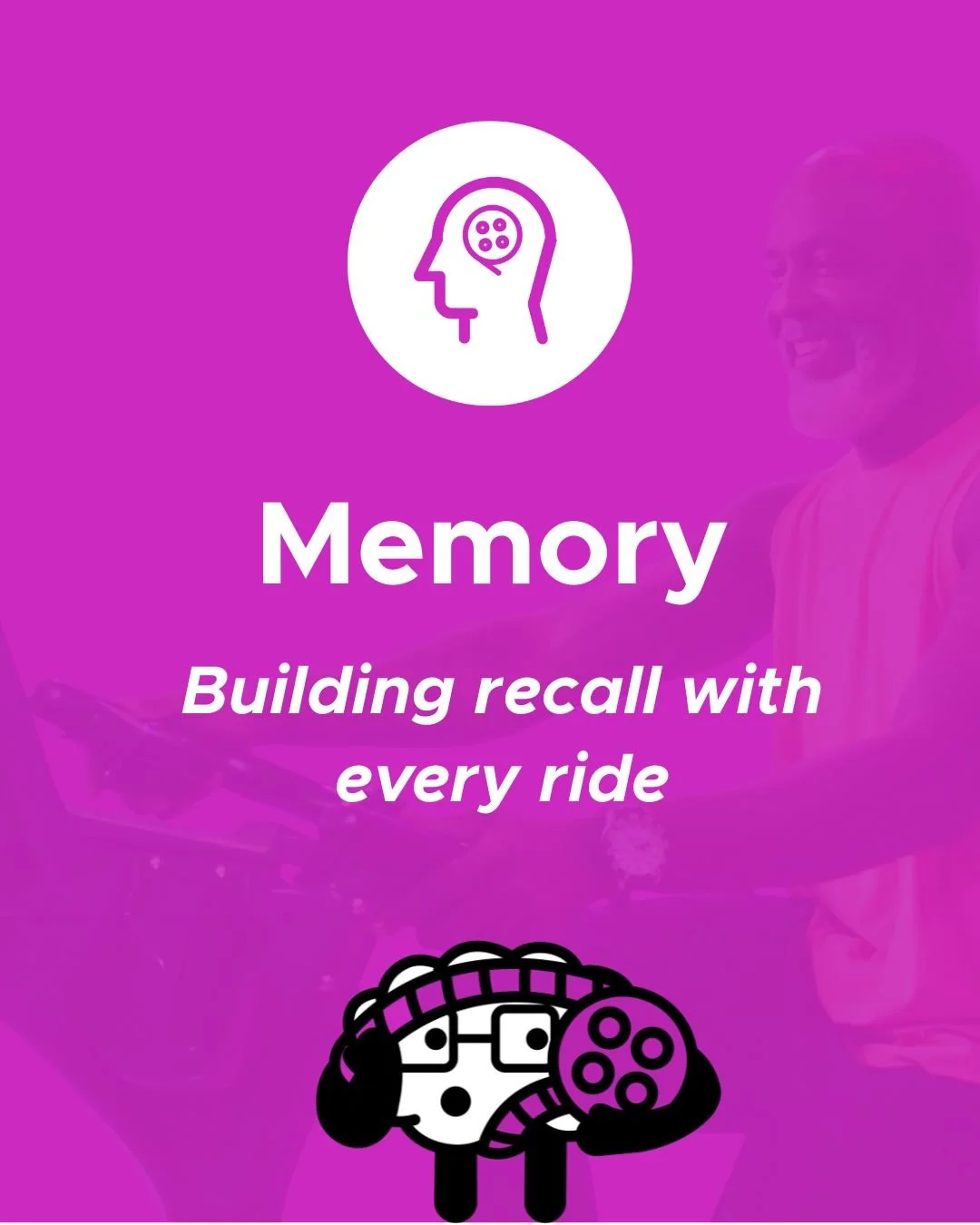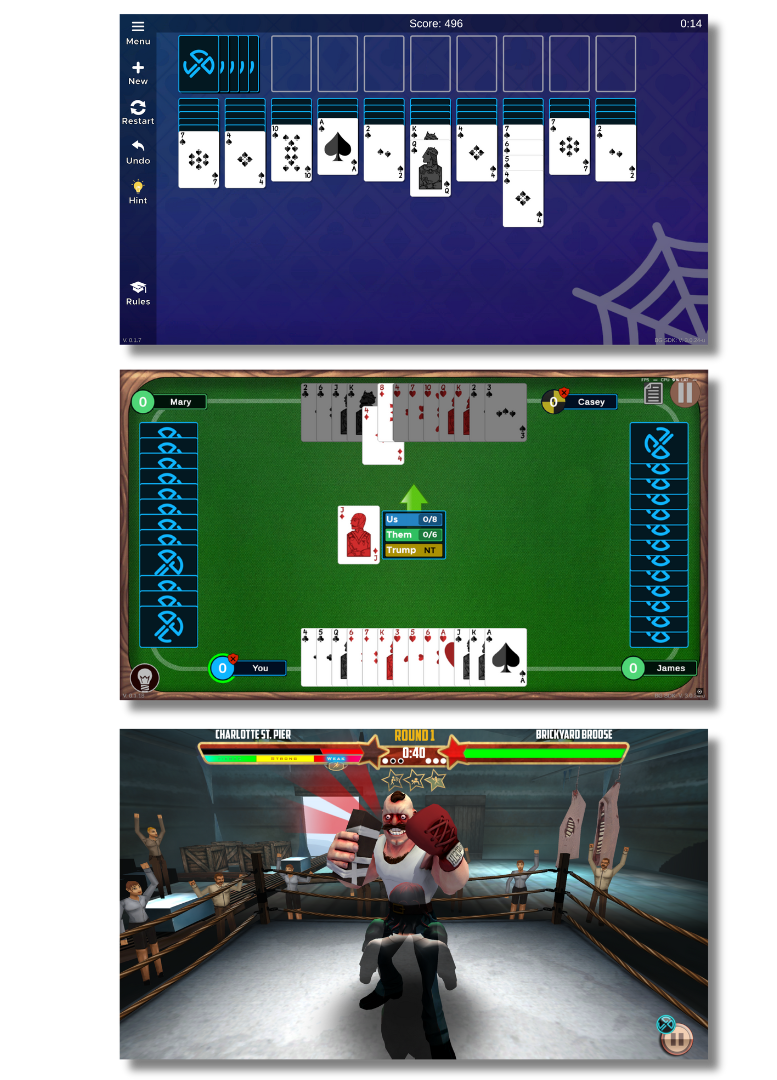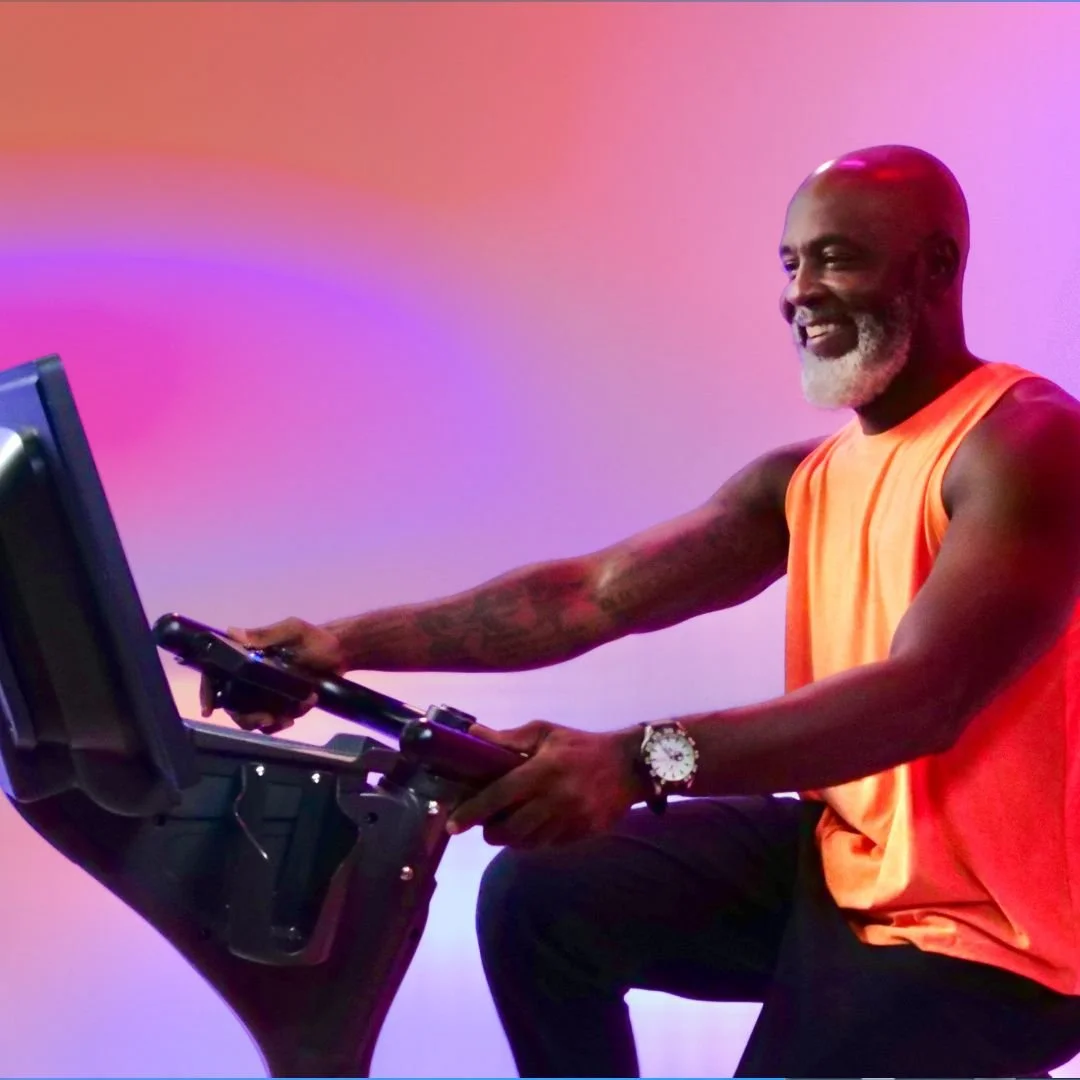Memory
Building Recall with Every Ride
Why Memory Matters
Think about the last time you misplaced your keys or struggled to recall a name. These moments highlight just how central memory is to daily life. From learning a new skill to managing everyday tasks, memory is the cognitive glue that holds our experiences together.
Unfortunately, memory is also one of the first functions to show signs of decline as we age. Conditions like mild cognitive impairment (MCI) affect more than one in five older adults in the U.S. (22.7 %)【1】, and memory decline is often among the earliest signs of Alzheimer’s disease【2】. The good news? Research shows that both physical exercise and mental challenges can stimulate the hippocampus—the part of the brain responsible for memory—and help preserve function【3】.
How Exercise Supports Memory
When you exercise, your body increases blood flow to the brain, delivering oxygen and nutrients that support neuronal growth. Studies have shown that aerobic exercise can actually increase the size of the hippocampus, leading to improvements in memory and learning【3】. Pairing that movement with cognitive challenges (a method called dual-task training) amplifies the benefit. You’re not only pumping blood to the brain—you’re making the brain work harder in ways that strengthen its pathways.
Training Memory Through Play
This is where Blue Goji’s Brain Skills Time Tracking comes in. Our games aren’t just about pedaling faster or steering through challenges—they’re about remembering, navigating, and recalling.
Examples:
Bridge exercises your working memory and long-term memory as you recall which items you’ve picked up, which remain, which have been played, all while keeping in mind the rules and strategies.
Solitaire exercises your short-term and spatial memory to remember and map the layout of cards and keep track of those you’ve sorted through.
In Fisticuffs, players rely on memory to associate visual cues with actions - identifying weak spots or anticipating attacks based on learned patterns from the opponents.
Every time you play one of these games, your memory is working in the background. With Brain Skills Time Tracking, we now measure how much time you spend exercising memory, so you can invest time playing games that exercise this brain skill.
Why It Matters for Different Ages
Older Adults: Regular memory training can help slow decline and preserve independence. Cognitive and physical dual-task workouts may reduce dementia risk by supporting “cognitive reserve” — the brain’s ability to adapt even when challenged by aging or disease【4】【5】.
Students & Young Adults: Memory isn’t just about aging. For teens and young adults, stronger recall supports academic performance, learning new material, and retaining focus in class.
Everyday Athletes: Memory also supports complex skills like learning a new sport, adapting to changing game strategies, and recalling plays under pressure.
Putting It Into Practice
Here are some ways to make memory training part of your fitness routine:
Mix Up Your Games: Rotate between GojiPlay games that force you to remember rules and strategies.
Track Your Progress: After each ride, check your Brain Skills dashboard to see how much time was spent on memory training.
Balance It Out: Pair memory-heavy games with others that focus on attention or executive functions for a well-rounded brain workout.
The Takeaway
Memory is too important to leave untrained. With Blue Goji’s Brain Skills Time Tracking, you now have the ability to see and strengthen your memory with every ride. Whether you’re fighting age-related decline, trying to boost your academic performance, or simply looking to sharpen your recall, your workout can now build more than muscle—it can build resilience for your mind.
📚 References
Petersen, RC. Mild cognitive impairment: prevalence and outcomes in older U.S. adults. PMC9013315
Alzheimer’s Association. 2025 Alzheimer’s Disease Facts and Figures. alz.org
Erickson, KI, et al. Exercise training increases size of hippocampus and improves memory. PNAS, 2011. nih.gov
Zhu, X, et al. Effects of dual-task training on cognition and motor function in MCI. PubMed 36716745
Stern, Y. Cognitive reserve in ageing and Alzheimer’s disease. The Lancet Neurology, 2012. PMC4969323



